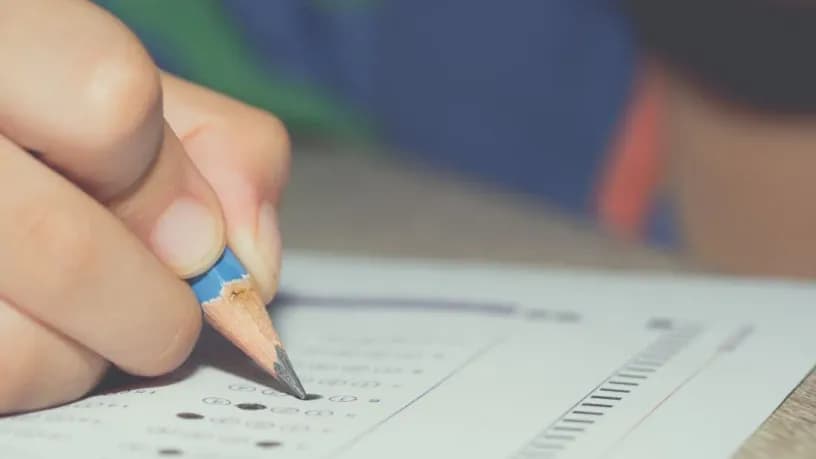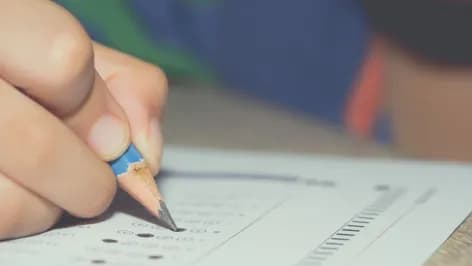

The results of the 'Waste Culture' exam have been revealed – would you be willing to answer these questions?
The 'Waste Culture' exam, held for the fifth time, attracted a record number of participants – more than 16,000 participants from all over Lithuania wanted to test their knowledge and compete for great prizes among themselves.
County (VAATC), led by Tomas Vaitkevičius, who has never doubted the significance of the exam's idea from the very beginning, is delighted today not only with the consistently growing participation of participants but also with the increasing awareness of the residents.
"The numbers speak for themselves – every year, an increasing number of residents decide to take the exam remotely, which shows the growing awareness and interest of all of us in the topics of Waste Culture. Although educational institutions traditionally demonstrate the highest activity in the exam – this year, 691 of them participated – more and more people decide every year to test and deepen their knowledge, having long closed the doors of the school but still caring about the environment surrounding us from all over Lithuania," says the initiator of the exam, T. Vaitkevičius.
Among them is Milda Paukštė, who constantly contributes to Waste Culture activities, taking the exam remotely for the fifth time this year. A woman who pays a lot of attention to sustainability topics in her daily life showed excellent results this year, but according to Milda, they were not the most important during the exam.
"It's always interesting to test one's knowledge. This time, I did really well on the exam – I managed to answer correctly nineteen out of twenty questions, but there is still room for improvement. It was interesting to observe my three children, who took the exam at home, to see how many correct answers they know from our daily life – I'm glad that questions like whether to wash or not to wash a yogurt container before sorting didn't pose challenges for them," says M. Paukštė.
The Waste Culture theme, according to M. Paukštė, is closely intertwined with various fields and activities, so interest in it should be a part of everyone's life, and the traditionally held exam each year is a great way to once again remind about the importance of the environment surrounding us and to contribute to its conservation.
Try to tackle the most challenging exam questions
As every year, the exam questions were prepared for three different age groups: for students in grades 1-4, students in grades 5-10, and students in grade 11 and older participants. Although 45 minutes were allotted to answer the questions, many participants needed even less time. Not making a mistake even once and correctly answering all the questions this year was achieved by 77 exam participants – each of them was awarded an "Expert" diploma.
The participant who correctly answers all the exam questions in the shortest time will be awarded an exclusive prize established by the company "Litbike" – an electric bicycle "E-City COREST Salley," and for the best results achieved by a participant from the Vilnius region, the exam sponsor – the meaningful shopping valley "Nordika" – will present an electric scooter "Beaster Voyager," turning riding into a real pleasure.
The organizers and sponsors of the exam have prepared even more for the most active and best-performing participants – from eco-friendly water bottles, backpacks, and other practically usable items to interesting educations and fun activities.
Even if you didn't manage to participate in this year's Waste Culture exam, you can test your knowledge and skills at the address examas.atliekukultura.lt/archyvas/ – here you will find all the exam questions.
The most challenging questions, which have become a serious challenge for participants of different groups, are presented below – will you be able to answer them correctly?
What should we not throw into food waste containers?
- tea leaves and bags;
- paper and paper towels stained with fats and other food products;
- food packaged in glass or metal containers;
- all answers are incorrect.
CORRECT ANSWER:
This question was intended for students in grades 1–4.
We should throw into food waste containers: fruits and their leftovers that are unsuitable for consumption; potato, carrot, and other vegetable peels; tea leaves and bags; coffee grounds and their paper filters; paper and paper towels stained with fats. Additionally, only meat, fish, milk, and other food product leftovers should be thrown into the food container. However, food packaged in glass, plastic, or metal containers should not be thrown into it. For example, spoiled pickled cucumbers, jams, or canned goods will have to be emptied into the food container, and the jar and cans thrown into the appropriate packaging containers. Thus, the correct answer is – food packaged in glass or metal containers should not be thrown into food waste containers.
Into food waste containers, along with food waste, you can throw:
- paper kitchen towels;
- grass and leaves;
- disposable paper dishes;
- all answers are correct.
CORRECT ANSWER:
This question was intended for students in grades 5–10.
Since January 1, 2024, following the Waste Framework Directive, biodegradable waste must be collected separately or composted at home. All waste generated during food preparation, as well as unsuitable food leftovers and used paper towels, can be thrown into food waste containers. Additionally, you can throw indoor plants, garden and yard waste, disposable paper dishes into food containers. Thus, all waste mentioned in the answers can be thrown into food waste containers.
Which institution is responsible for coordinating the activities of state and municipal institutions in the field of waste management?
- The Environmental Protection Department at the Ministry of Environment;
- The Parliament of the Republic of Lithuania;
- The Ministry of Health of the Republic of Lithuania;
- none of the answers are correct.
CORRECT ANSWER:
This question was intended for students in grade 11 and older participants.
All the listed institutions have defined competence in the field of waste management – the Parliament adopts laws regulating this area, the Ministry of Health coordinates the actions of healthcare institutions in implementing medical waste management facilities, and the Environmental Protection Department controls the implementation of established requirements for waste management. The competence to coordinate the activities of state and municipal institutions in the field of waste management is attributed to the Ministry of Environment of the Republic of Lithuania by the Waste Management Act. Thus, the correct answer is – the last answer.


